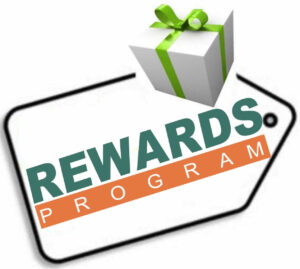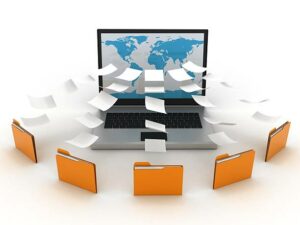When do businesses reward customers when they are going to come back anyway. Is this a waste of money or does it work
Estimated reading time: 5 minutes

From a coffee card to a Mixmaster the choice is yours
A standard reward is the Coffee card where you buy ten and get one free or one of the many derivatives.
I probably have half a dozen half-filled-out cards so are they attracting me back?
They certainly produce a loyalty factor based on earning a free coffee however they also keep the business in a top-of-mind position.
This is a branding exercise that triggers recognition and produces results.
The cost to the shop is minimal and they may sell other products while you are getting your free coffee
The supermarket chains are excellent at this
They all have a reward program that is promoted widely. You never walk out of the cashier channels without being asked
if you are a reward member. They are certainly not shy about the program because they know that it will bring you back.
Supermarket spending is generally big and consistent dollars so gathering your loyalty is essential to their continued growth.
They don't stop at the turnstiles. They send emails and SMS messages to promote the reward program so that it influences
your decision on where to shop next
Frequent flyer programs are big business
The frequent flyer programs are a business on their own run independently of the big airlines. They want you back on one of their planes
and if that means discounting a ticket then so be it. Many never use the value in the flyer program whereas others gain substantially from them.
Rewards programs cover all businesses
The concept of rewards programs delivering a return is as relevant in small businesses as it is in large organizations.
It is all about the customer.
We know that a returning client costs far less than trying to get a new one. The trick is building loyalty based on a real premise.
It may be simply greed, or convenience however it is often about doing the right thing.
Even Maccas are in the game
Being an old bloke I get a free seniors coffee at Maccas. I would never go just for the coffee I go to buy other stuff to get my free coffee.
But Maccas are smarter than many because they give away toys for the kids. Cheap bits of plastic that cost little but return lots.
The latest is a competition to win prizes where every fourth person wins, or so they say. It is a free reward for buying junk food what more could you want?
Starbucks are a big believer and this short video gives you a lot more
The Movie world has gotten involved
For a long time, it was easy to fill theatres with paying customers but along came Covid and changed the habits of us all. Now the theatres have to bribe you back with free offers and cheaper tickets.
In many cases, it is about building a database of movie fans so they can email offers to when things are quiet. IT has stopped the slide and patrons are starting to return.
Borrowing a loyalty program
Many businesses use systems like Flybys or Airline frequent flyer points as a basis for rewarding customers. Offers lime get 1000 frequent flyer points with every purchase to get customers to stay. Yes, there is a cost but that cost is cheaper than a discount or having an advertising premium
The value of a database

Having a good and current database opens a world of opportunities. You can market them at any time and gain a great insight into behavior.
Your offers may depend on the demand for your product so in quiet times you ramp things up and during busy moments you back off. Just like turning a tap on and off. This is cheap marketing to a target audience that is easy to gauge reactions.
In fact, you can even push complimentary products to boost your income.
Remember a database has a real asset value that will make a difference to your business.
Why do businesses reward customers?
Rewarding customers is a low-cost marketing program that builds loyalty and gathers repeat customers while building
a targeted Database for future marketing contact
What works best in loyalty programs
The marketing organization McKinsey identified three elements that successful paid loyalty programs have in common:
- The benefits outweigh the fees, which encouraged sign-ups.
- Members stick around for more experiential advantages, like personalized experiences and members-only content.
- Engagement levels are high. Good-paid programs have a continuous flywheel of interaction that elevates the program's value.
McKinsey went on to say that members were 62% more likely to buy when in a program. Spread this over a few thousand customers
and you have a massive opportunity market.
Define the benefits
- You increase your return sales
- Plus you build a database that has a value
- it reduces your marketing cost
- There is an ability to judge marketing behavior
The small cost of a rewards program can deliver bigger returns when done properly
Conclusion
As a firm believer in rewards programs, it is easy for me to see the many benefits. However when the major retail outlets push them so hard
it must be obvious that they produce results that return a big dividend.
Any retail operation can benefit from a properly orchestrated program. It could be a simple coffee card for a major program.